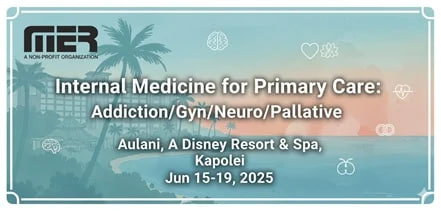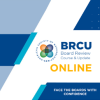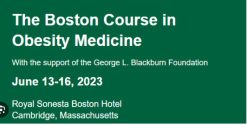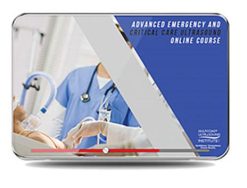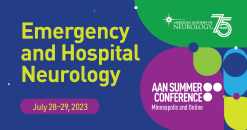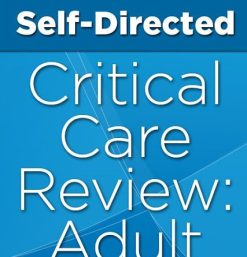Internal Medicine for Primary Care: Addiction/Gynecology/Neurology/Palliative 2025 (Videos with subtitles + Slides)
$180,00
This Product is shared via google drive download link, So please share your correct Gmail id while placing the order .Please note that there are no CME points or certificate associated with this course Samples for Courses Can be found here : Free Samples Here!
Format: 5 MP4 + 5 VTT + 25 PDF files
INTERNAL MEDICINE FOR PRIMARY CARE: ADDICTION/GYNECOLOGY/NEUROLOGY/PALLIATIVE
Oahu, HI – Aulani, A Disney Resort & Spa
June 15 – 19, 2025
Target Audience
This program is targeted to office-based primary care providers and other health professionals with updates in primary care medicine
Learning Objectives
Upon completion of this program, participants should be better able to:
- – Perform a neurological exam
- – Utilize history and physical examination to distinguish weakness from non-specific symptoms
- – Describe the differential diagnosis of headaches and migraines
- – Discuss evidence-based management options for Alzheimer’s disease
- – Evaluate weakness and recognize cardinal features of Parkinson’s disease as well as other movement disorders
- – List details about the Medicare hospice benefit
- – Describe the primary care approach to palliative medicine including symptom management
- – Recognize the importance of prognosis in decision making for seriously ill patients
- – Define and establish goals of care with patients and their families
- – Discuss pain management options with both nonopioid and opioid medications
- – Describe the neurobiology of addiction
- – Discuss options for patients with chronic pain addictions
- – Identify therapies, including nonpharmacological pain treatment strategies, that can reduce the dose of opioids to control pain
- – Develop a treatment plan for Alcohol Use Disorder
- – Apply evidence-based treatment strategies to chronic brain disorders affecting behavioral addictions
- – Assess and manage abnormal uterine bleeding
- – Discuss menopausal transition and the risks/benefits of treatment options
- – Describe the management of HPV infection and abnormal pap smear results
- – Identify evidence-based tools to determine best practices in incorporating all necessary elements in the annual women’s health visit
- – Discuss modern methods of fertility, natural family planning and contraception
Agenda & Learning Objectives
| Time | Session Title | Topic | Description |
| Sunday, June 15, 2025 | |||
| 2:30 pm | Registration | ||
| 3:00 pm – 4:00 pm | The Neurological Exam | Neurology | Characteristics and objectives of the examination; exam phases; assessing general mental status; long-term predications; examination of infants; demonstration on conducting an exam. |
| 4:00 pm – 5:00 pm | Evaluating Weakness | Neurology | Using the history and physical examination to distinguish weakness from non-specific symptoms; characteristics of neurological diseases that produce weakness; presentations of representative diseases of the nervous system. |
| 5:00 pm – 6:00 pm | Headaches & Migraines | Neurology | Basic headache mechanisms; headache history: characteristics, precipitating factors, medical conditions; migraine: common tension, classic, treatment, complicated, cluster, sinus; trigeminal neuralgia; Giant Cell Arteritis; brain tumor; subarachnoid hemorrhage; emergency room treatment. |
| 6:00 pm | Session Adjourns | ||
| Monday, June 16, 2025 | |||
| 7:00 am | Registration and Hot Breakfast | ||
| 7:30 am – 8:30 am | Medicare Hospice Benefit | Palliative | Which patients are eligible? What is palliative care? What does the Medicare benefit provide for patients and families? |
| 8:30 am – 9:30 am | Symptom Management | Palliative | Symptom management; Symptom management of dyspnea and cough, pain, nausea and vomiting, constipation, and agitation, at the end of life. |
| 9:30 am – 9:40 am | Coffee Break | ||
| 9:40 am – 10:40 am | Prognostication for the PCP | Palliative | Estimating life expectancy for patients with life-limiting illnesses such as CHF, Alzheimer’s dementia, Parkinson’s disease, end stage renal disease. |
| 10:40 am – 11:40 am | Alzheimer’s & Other Dementias | Neurology | Definition; statistics; neurological changes of normal aging; pathology; etiological theories; vascular dementias; investigations; social issues; symptomatic treatment; research therapies. |
| 11:40 am – 12:40 pm | Parkinson’s Disease & Other Movement Disorders | Neurology | Epidemiology; cardinal features; secondary features; pathology; neurochemistry; differential diagnosis; treatment; complication; other movement disorders; neuroleptic- induced movement disorders; chorea. |
| 12:40 pm | Session Adjourns | ||
| Tuesday, June 17, 2025 | |||
| 7:00 am | Registration and Hot Breakfast | ||
| 7:30 am – 8:30 am | Addiction 101 | Addiction | This module will introduce the disease model of addiction, its neurobiology, and some of the toolseasily used in the primary care setting to identify who is at risk for addiction. |
| 8:30 am – 9:30 am | Chronic Pain and Addiction | Addiction | Epidemiology of pain; risk factors and comorbidity; pain management concepts; patient factors affecting the analgesic response; the relationship between stress and chronic pain; the range of therapeutic options for management including non-pharmacologic approaches. |
| 9:30 am – 9:40 am | Coffee Break | ||
| 9:40 am – 10:40 am | Opioid Use Disorder | Addiction | Update on the opioid crisis; Risk for opioid misuse and addiction; FDA approved medication for treating overdose; FDA approved medication-assisted treatment (MAT) for managing opioid addiction. |
| 10:40 am – 11:40 am | Addressing Goals of Care | Palliative | Definition of POA, DNR, DNI, DNH, MOLST, POLST; Techniques on how to address goals of care, both in acute crisis as well as when the patient has chronic issues. |
| 11:40 am – 12:40 pm | Pain Management in the Palliative Care Patient | Palliative | Treatment of pain with both nonopioid and opioid medications; New guidelines related to opioid prescribing; Side effects management. |
| 12:40 pm | Session Adjourns | ||
| Wednesday, June 18, 2025 | |||
| 7:00 am | Registration and Continental Breakfast | ||
| 7:30 am – 8:30 am | Abnormal Uterine Bleeding | Gynecology | Overview of normal/abnormal menstrual physiology/profile; Menstrual disturbances; Ovulatory and anovulatory uterine bleeding; Other menstrual abnormalities; Diagnosis and appropriate treatment options. |
| 8:30 am – 9:30 am | Menopause Transition and Hormone Replacement Therapy | Gynecology | Symptoms of menopause, including hot flashes, night sweats, and atrophy; Menopause syndromes, including osteoporosis, breast cancer, cardiac disease, and colon cancer; Estrogen analogs; Counseling patients in options and alternatives to hormone therapy; Designer estrogens; SERMs; HRTs; Discussion of risks and benefits, especially in breast cancer and CHD. |
| 9:30 am – 9:40 am | Coffee Break | ||
| 9:40 am – 10:40 am | Cervical Cancer Screening Including HPV Management | Gynecology | Current recommendations for cervical cancer screening; incorporating the ASCCP consensus guidelines for management of cytologic cervical abnormalities (including ASCUS, LGSIL, HGSIL and atypical glandular cells) into practice; Algorithm for the appropriate use of HPV testing and managing results; Determining appropriate candidates for the use of the HPV vaccine. |
| 10:40 am – 11:40 am | Alcohol & Benzodiazepines | Addiction | The scope of alcohol related problems and the societal burden of Alcohol Use Disorder; Overview of FDA-approved and more common off-label pharmacotherapies for Alcohol Use Disorder. |
| 11:40 am – 12:40 pm | Gaming, Gambling & Social Media | Addiction | Behavioral addictions to gaming, gambling and social media are poorly understood and thus underdiagnosed and under-treated. They are chronic brain disorders with specific risk factors and require appropriate screening, diagnosis and evidence-based treatment. |
| 12:40 pm | Session Adjourns | ||
| Thursday, June 19, 2025 | |||
| 7:00 am | Registration and Continental Breakfast | ||
| 7:30 am – 8:30 am | Annual Exam for Women | Gynecology | Best practices in offering annual pelvic examinations in asymptomatic non-pregnant women; Determination of who should be offered a clinical breast exam as a routine part of the annual women’s health exam; The principal elements of the annual women’s health visit: screening, vaccinations, evaluation of health risks and needs, counseling; Evidence-based tools to guide components of the annual women’s health visit based on age and health needs. |
| 8:30 am – 9:30 am | Fertility Awareness and Management | Gynecology | Comprehensive review and strategies to apply the physiologic knowledge of the menstrual cycle to clinical situations; Analysis of information about peak fertility times; Comparison and contrast of modern methods of fertility awareness and contraception. |
| 9:30 am | Conference Adjourns |
Related products
ENDOCRINE / NUTRITION
CRITICAL CARE / EMERGENCY MEDICINE
INTERNAL MEDICINE
PULMONARY /RESPIRATORY
CRITICAL CARE / EMERGENCY MEDICINE
Harvard Advanced Trauma Management for the Emergency Physician 2022 (CME VIDEOS)
CRITICAL CARE / EMERGENCY MEDICINE
ASN Critical Care Nephrology – 2022 Update (On-Demand and Livestream)

